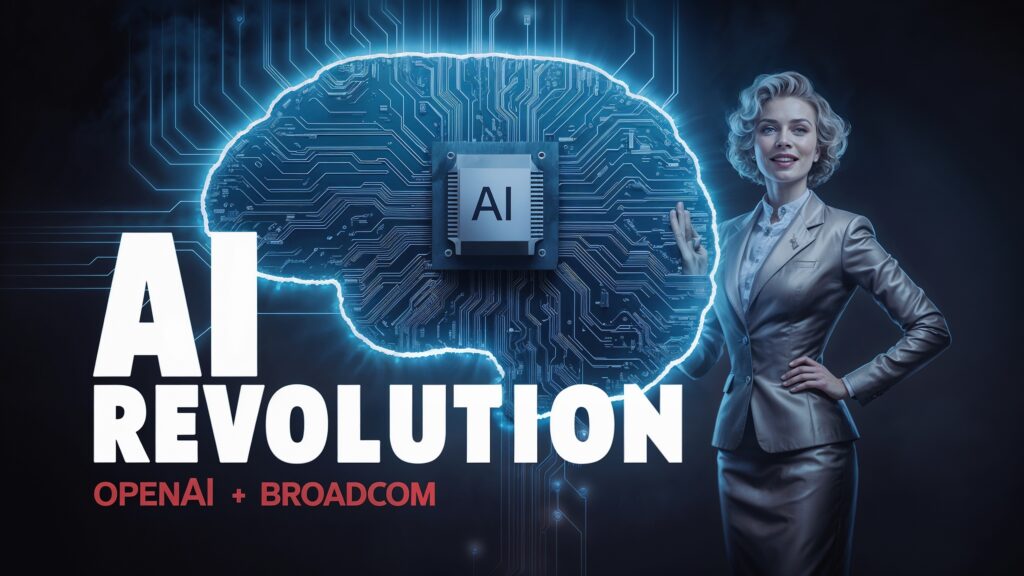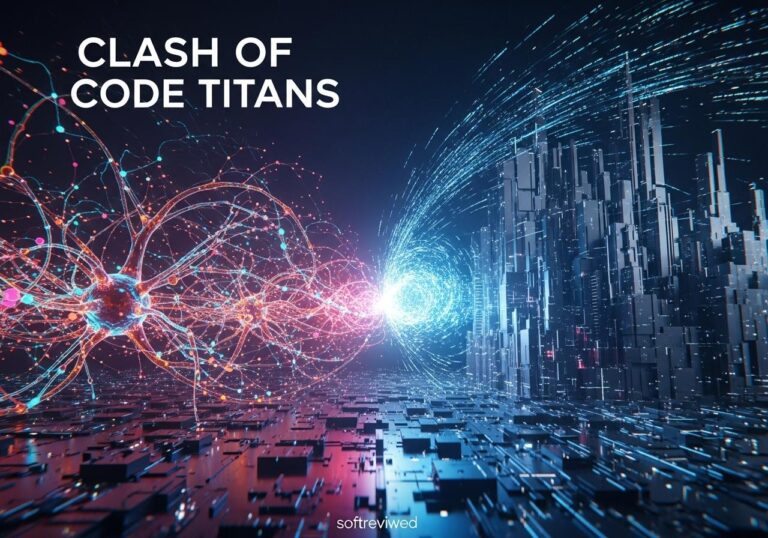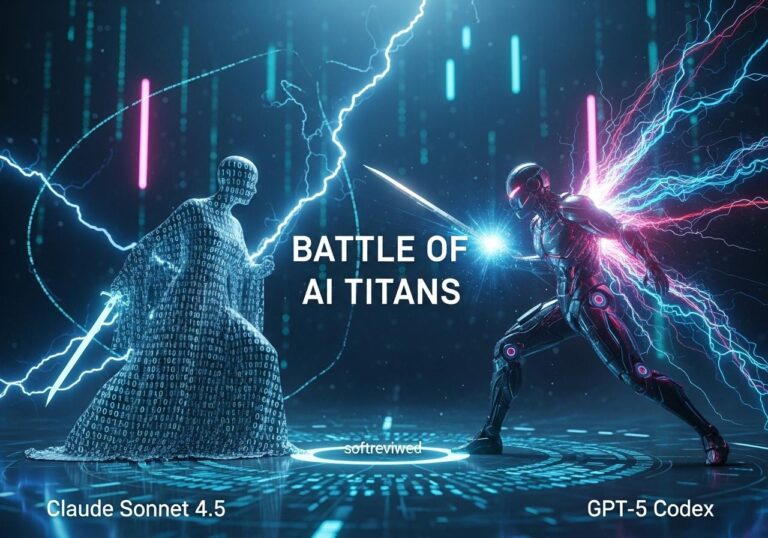OpenAI Powers Up: Building the Future of AI Chips
OpenAI is taking control of its destiny by developing its own AI chips to fuel the next generation of AI 🧠
Breaking Free from GPUs
OpenAI is tackling the GPU shortage head-on by exploring the development of its own AI chips with Broadcom, aiming to power its demanding models like ChatGPT and DALL-E more efficiently.
The Dream Team
OpenAI is assembling a team of AI chip experts, including former Google engineers, and collaborating with industry giants like Intel, TSMC, and Samsung Electronics.
Democratizing AI
By producing its own chips, OpenAI aims to reduce costs significantly, making its cutting-edge AI technology accessible to a wider audience.
Strategic Alliances
OpenAI is solidifying its leading position by partnering with tech titans such as Microsoft, Apple, and now Broadcom, shaping the future of AI.
Building for the Future
OpenAI has ambitious plans to establish a network of semiconductor factories, signaling its long-term commitment to advancing and democratizing AI technology.
OpenAI and Broadcom Join Forces to Develop Cutting-Edge AI Chips
In a groundbreaking move that could reshape the landscape of artificial intelligence, OpenAI has entered into discussions with Broadcom to develop new AI chips. This collaboration aims to address the critical shortage of graphics processing units (GPUs) that are essential for creating advanced AI models like ChatGPT, GPT-4, and DALL-E3. Let’s explore the implications of this partnership and its potential impact on the future of AI technology.
The GPU Shortage: A Roadblock to AI Innovation
AI model development has been facing a significant hurdle: the scarcity of expensive GPUs. These powerful processors are the backbone of AI training and inference, but their limited availability has been slowing down progress in the field. OpenAI’s initiative to partner with Broadcom is a strategic move to overcome this obstacle and ensure continued innovation in AI technology.
Key Challenges Posed by GPU Shortage:
- Delays in AI model development and deployment
- Increased costs for AI research and development
- Limited scalability for AI applications
- Reduced competitiveness in the AI market
Custom AI Chips: A Game-Changing Solution
The collaboration between OpenAI and Broadcom focuses on developing tailored AI chips that could revolutionize the way AI models are created and optimized. These custom chips have the potential to offer several advantages over traditional GPUs:
Enhanced Performance: Chips designed specifically for AI applications can deliver superior performance for tasks like natural language processing and image generation.
Improved Efficiency: Custom AI chips can lead to a significant increase in efficiency, potentially up to 30% compared to standard GPUs.
Cost Reduction: By optimizing hardware for specific AI tasks, companies could see a 25% reduction in costs associated with AI model development and training.
Scalability: Purpose-built chips can be more easily scaled to meet the growing demands of AI research and applications.
Energy Efficiency: Tailored chips may consume less power, contributing to more sustainable AI development practices.
Industry Impact: Reshaping the AI Landscape

The potential success of this partnership between OpenAI and Broadcom could have far-reaching consequences for the entire AI industry. Here are some ways this collaboration might influence the sector:
Accelerated Innovation: With more efficient hardware, AI researchers and developers can push the boundaries of what’s possible in machine learning and deep learning.
Competitive Advantage: Companies with access to custom AI chips may gain a significant edge in developing and deploying advanced AI models.
New Industry Standards: Successful implementation of custom AI chips could lead to new benchmarks and standards in AI hardware design.
- Diversification of AI Hardware: This move might encourage other tech giants to invest in developing their own AI-specific chips, fostering healthy competition and innovation.
Security and Cost Benefits of Custom AI Chips
Beyond performance improvements, the development of custom AI chips could bring additional benefits in terms of security and cost management:
Enhanced Cybersecurity
- Reduced Attack Surface: Custom chips can be designed with built-in security features, potentially reducing vulnerabilities.
- Improved Data Protection: Tailored hardware can offer better control over data flow and storage, enhancing privacy measures.
Cost Optimization
- Reduced Dependence on Third-Party GPUs: By developing in-house solutions, companies can better manage their hardware costs.
- Optimized Resource Allocation: Custom chips allow for more efficient use of computing resources, potentially lowering operational expenses.
Expert Opinions on the OpenAI-Broadcom Collaboration
Industry experts have weighed in on the potential impact of this partnership:
“By developing custom AI chips, we can unlock the full potential of our AI models and drive innovation in the industry.” – Unknown OpenAI Representative
This sentiment reflects the optimism surrounding the collaboration and its potential to push AI technology forward.
Challenges and Controversies
Despite the excitement, the move towards custom AI chips is not without its challenges and debates:
Standardization Concerns: Industry leaders are discussing the potential implications of custom AI chips on standardization and compatibility across different platforms.
Market Fragmentation: The proliferation of proprietary hardware solutions could lead to a fragmented AI hardware market.
Accessibility Issues: Smaller companies and researchers might face difficulties accessing cutting-edge AI hardware if it becomes increasingly proprietary.
- Ethical Considerations: The development of more powerful AI chips raises questions about the responsible use and potential misuse of advanced AI technologies.
Future Implications: A New Era of AI Development
The partnership between OpenAI and Broadcom could mark the beginning of a new era in AI development. Here are some potential future implications:
Advancements in AI Capabilities
- More sophisticated natural language processing models
- Enhanced computer vision and image generation capabilities
- Improved real-time AI decision-making systems
Cross-Industry Applications
- Healthcare: Faster and more accurate diagnostic tools
- Finance: More complex risk assessment and fraud detection systems
- Cybersecurity: Advanced threat detection and prevention mechanisms
Democratization of AI
- Potential for more affordable AI solutions as technology matures
- Increased accessibility of advanced AI tools for smaller businesses and researchers
The Road Ahead: Navigating the Challenges and Opportunities
As OpenAI and Broadcom move forward with their collaboration, several key considerations will shape the development and implementation of custom AI chips:
Technical Challenges: Designing and manufacturing chips specifically for AI applications presents unique engineering challenges that must be overcome.
Regulatory Landscape: As AI technology advances, regulatory frameworks may need to evolve to address new capabilities and potential risks.
Talent Acquisition: The demand for skilled professionals in AI hardware design and optimization is likely to increase significantly.
Ecosystem Development: Building a robust ecosystem around custom AI chips will be crucial for their widespread adoption and success.
Balancing Openness and Proprietary Technology: Striking the right balance between open collaboration and protecting intellectual property will be an ongoing challenge.
Conclusion: A Transformative Partnership for AI Innovation
The collaboration between OpenAI and Broadcom to develop new AI chips represents a significant milestone in the evolution of artificial intelligence technology. By addressing the critical shortage of GPUs and optimizing hardware for AI-specific tasks, this partnership has the potential to accelerate innovation, enhance performance, and reduce costs in AI development.
As the project progresses, it will be crucial to monitor its impact on the broader AI landscape, including issues of standardization, accessibility, and ethical considerations. The success of this initiative could pave the way for a new generation of AI applications that are more powerful, efficient, and accessible than ever before. Additionally, it is important to keep track of AI model evaluation advancements to ensure that the models being developed not only meet performance benchmarks but also align with ethical guidelines and fairness criteria. These advancements will play a pivotal role in determining how future AI systems are deployed and integrated into various industries. Ultimately, a comprehensive approach that incorporates technological, ethical, and societal considerations will be key to realizing the full potential of AI in a responsible manner.
The AI community and industry stakeholders will be watching closely as this collaboration unfolds, eager to see how it will shape the future of artificial intelligence and its applications across various sectors. As we stand on the brink of this potential breakthrough, one thing is clear: the partnership between OpenAI and Broadcom marks an exciting new chapter in the ongoing story of AI innovation.
Call to Action
Stay informed about the latest developments in AI chip technology and its impact on various industries. Share your thoughts and insights on this collaboration and its potential implications for the future of AI. Join the conversation and be part of shaping the next generation of artificial intelligence solutions.
OpenAI’s Potential AI Chip Impact (2024)
Projected market share of AI chips and high-bandwidth memory (HBM) supply in 2024, considering OpenAI’s potential entry.







